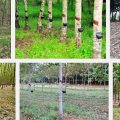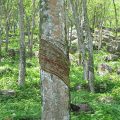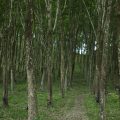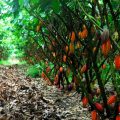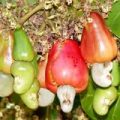Rubber seedlings grown in root trainer containers develop 300% more lateral roots compared with rubber seedlings grown in conventional polybags. This results in faster growth and development of rubber quality planting materials.
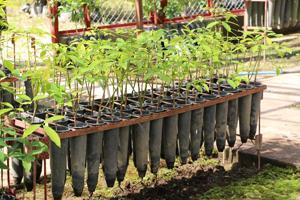
The root trainer technology enhances the development of straight tap root and many root hairs allowing the rubber plant to withstand environmental stress after planting, resulting in high survival rate and uniformity in growth.
Root trainers are specially designed plastic containers that have vertical ridges inside to promote fast and healthy growth of roots. This technique stimulates well-established root system by preventing tap root coiling. The size and shape of the containers also eases transporting and handling rubber seedlings.
Based from the project titled, “Innovation of Root Trainer Technique and Precision Grafting Technology for Rapid Propagation of Quality Planting Materials of Rubber,” quality planting materials of rubber were grown in just 5-6 months using the root trainer technology combined with young budding propagation technique, compared with the use of conventional polybag nursery practice that takes 10-18 months. Budding can also start as early as 20 days.
Root trainers were first discovered in India and new propagation techniques were adapted from Indonesia and China. With these in mind, project leader Ernie Camacho of the Department of Agriculture Regional Field Office 9 (DA-RFO 9) thought of a way to verify the applicability of root trainer in the country and test new and innovative techniques in the production of quality and affordable planting materials of rubber.
According to Camacho, the new technique will enable the Philippines to propagate climate-resilient rubber at lower cost. The root trainer technology is also projected to be profitable in the downstream market.
Falling under PCAARRD’s strategic R&D banner program, the developed technology is envisioned to be commercialized in the country to help resolve the prevailing issue of the high demand of rubber quality planting materials.
This project is funded by the Philippine Council for Agriculture, Aquatic, and Natural Resources Research and Development of the Department of Science and Technology (DOST-PCAARRD). It is one of the three finalists for the research category of the National Symposium on Agriculture, Aquatic and Natural Resources Research and Development (NSAARRD), spearheaded by PCAARRD.
NSAARRD awardees will be recognized during the PCAARRD’s Awards and Recognition Ceremony on June 19, 2019 at the Philippine International Convention Center (PICC), Pasay City.
by Eirene Grace C. Zaragoza, DOST-PCAARRD S&T Media Services
